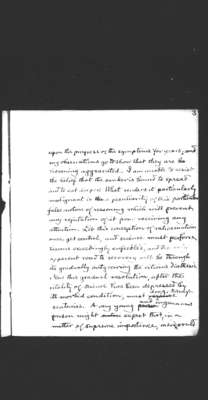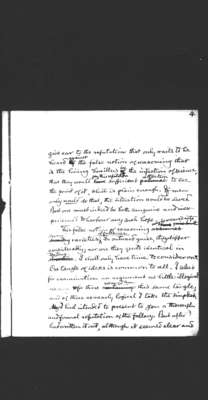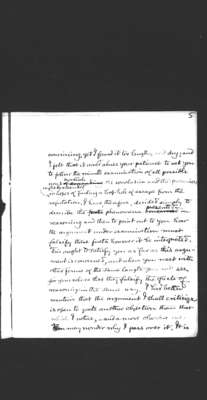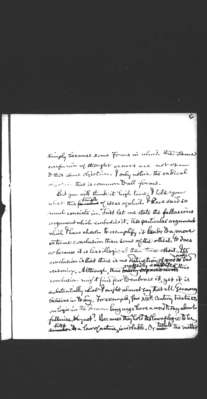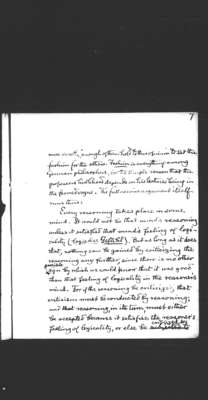Pages
6
upon the progress of the symptoms for years; and my observations go to show that they are be becoming aggravated. I am unable to resist the belief that the canker is bound to spread and to eat deeper. What renders it particularly malignant is the a peculiarity of this particular false motion of reasoning which will prevent reputation of it from receiving any attention. Let this conception of ratiocination once get control, and science must perforce become exceedingly enfeebled; and the only apparent road to recovery will be through its gradually outgrowing the vicious? diathesis. Now this gradual resolution, after the vitality of science has been depressed by its morbid condition, must repine drag through centuries. A very young person and ingenuous? person might antici expect that in a matter of supreme importance, men would
7
give ear to the refutation that only waits to be heard against the false notion of reasoning that is the living bacillus in the infection of science, that they would pay this reputation sufficient attention to see the point of it, which is plain enough. If men only would do that, the situation would be saved. But one must indeed be both sanguine and inex perienced to harbour any such hope.
This false notion of reasoning may be [weaved?] into seven varieties of fallacies. In outward guise, they differ considerably; nor are they quite identical in texture. I shall only have time to consider one. One tangle of ideas is common to all. I select for examination an argument as little illogical as any of those weaved from this same tangle; and of those as nearly logical I take the simplest.
I had intended to present to you a thorough and formal refutation of the fallacy. But after I had written it out, although it seemed clear and
8
convincing, yet I found it too lengthy and dry; and I felt that it would abuse your patience to ask you to follow the minute eamination of all possible ways in which the conclusion and the premises might be [emended?] in hopes of finding a loop-hole of escape from the refutation. I have, therefore, decided simply to describe the phenomena presented in reasoning and then to point out to you how the argument under examination must falsify these facts however it be interpreted. This ought to satisfy you as far as this argu ment is concerned, and when you meet with other forms of the same tangle you will see for yourselves that they falsify the facts of reasoning in the same way. I had better mention that the argument I shall criticize is often to quite another objection than that which I notice,--and a more obvious one. You may wonder why I pass over it. It is
9
simply because some forms in which the same confusion of thought occurs are not often to this same objection. I only notice the radical objection that is common to all forms.
But you will think it high time I told you what this tangle of ideas of which I have said so much consists in. First let me state the fallacious argument which embodies it. The particular argument which I have chosen to exemplify it leads to a more extreme conclusion than some of the others. It does so beacuse it is less illogical than these others. Its conclusion is that there is no distinction of good and bad reasoning. Although, thus nakedly exhibited this conclusion might find few to embrace it, yet it is substantially what I might almost say that all Germany believes in today. For example, few XIXth Century treatises on logic in the German language have a [wont?] to say about fallacies, why not? Because they hold the law of logic to be, like a law of nature, inviolable. Or to state the matter
10
more exactly, enough of them hold to this opinion to set the fashion for the others. Fasion is everything among German philosophers, for the simple reason that the professers livlihood depends on his lectures being in the favored vogue. The fallacious argument itself [runs?] thus:
Every reasoning takes place in some mind. It would not be that mind's reasoning unless it satisfied that mind's feeling of logi cality ([logisches Gefiihl?]). But as long as it does that, nothing can be gained by criticizing the reasoning any further, since there is no other possible sign by which we could know that it was good than that feeling of logicality in the reasoner's mind. For if the reasoning be criticized, that criticism must be conducted by reasoning; and that reasoning, in its turn, must either be accepted because it satified the reasoner's feeling of logicality, or else be criticized by
